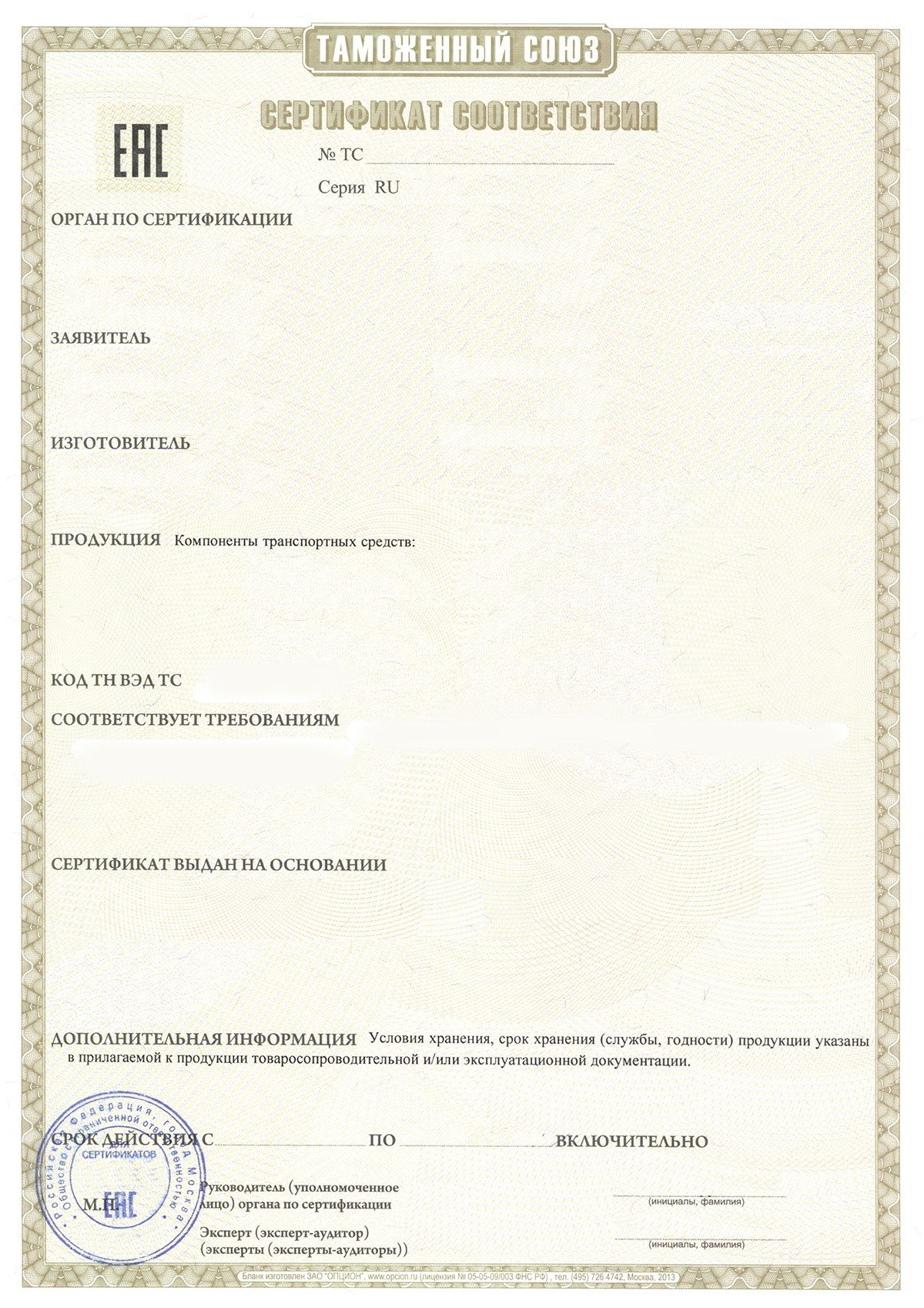
Declaration or Certificate of Conformity?
Getting the right certification for your products
Technical regulations ensure the safety of equipment used in the EAEU. If your product is of a technical nature operating in a high pressure / high temperature environment or is exposed to potentially dangerous fluids, specific certifications are mandatory. In many cases you will need a Certificate of Conformity (CoC) or a Declaration of Conformity (DoC) to Customs Union / EAEU Technical Regulations (TR CU/ TR EAEU), stating that your product:
conforms to the unified standards of the Eurasian Economic Union;
can be EAC marked;
can be imported into the EAEU countries.
When a product meets all the applicable safety requirements it can be EAC marked (i.e. it obtains Eurasian conformity) and therefore be imported and used within the EAEU.
General Requirements for customs clearance, commissioning and operation
Certificate or Declaration of Conformity CU / EAEU TR
State Registration
Letters of Exemption (LoE)
Metrology Certificate (PAC)
Technical Passports
Safety Justification
Others
Declarations and Certificates of Conformity
The conformity of assessment for a product is confirmed by two fundamental documents:
Declaration of Conformity
Certificate of Conformity
These are the documents required to import equipment into the EAEU falling under the applicable TR EAEU / CU. Both document types are registered with a unique number in the online register of the Federal Service Authority (FSA) and publicly available for examination. The main criteria to determine the correct type of document of assessment are based on:
Nature of the product
Field of application
Operating conditions
During our preliminary technical evaluation, our team will review the relevant technical documentation and advise what documents are applicable for your specific equipment.
Declaration of Conformity
The Declaration of Conformity is destined for products with low safety risk and has a simplified issuing procedure.
Declarations of Conformity for products by non-EAEU manufacturers are issued by their EAEU-domiciled representatives, based on manufacturers’ own test reports or test reports by an accredited laboratory.
For low-risk products/ equipment.
Formally declared by the manufacturer's local representative (applicant), based on a representation agreement signed by both parties.
The application and subsequent declaration are registered directly by the local representative, who assumes responsibility for it in front of the authorities, including the technical documentation required by the regulations (test reports, technical passports, etc.).
Certificate of Conformity
The Certificate of Conformity involves products whose safety risk is higher (eg TR CU 012/2011 is required for products used in explosive atmospheres) and has a more complex procedure.
The certificate is issued by an accredited certification body, based on testing of sample equipment in an appropriate EAEU laboratory. Large and heavy equipment is allowed to be test-witnessed by a certification expert at the manufacturing site or at the destination construction or operation site.
For products / equipment which by their nature or field of application present higher safety risks.
Formally issued by a certification body with appropriate accreditation, based on the necessary documents, test reports, inspections, etc.
The certificate is issued in the name of the local representative of the manufacturer, based on the local representation agreement and the formal request of the local representative.
Responsibility is shared between the local representative and the certification body.
Certification Schemes
Both Declarations and Certificates can be issued either as one-off or serial type certification depending on the circumstances of supply.
Batch or one-off:
covers a contractual scope of supply
valid for a defined batch of goods supplied under a specific contract
valid for the service life of the equipment
Type or serial:
applicable to products of the same design (serial production) or part of a standardized group (catalogue)
valid for an unlimited number of deliveries in the EAEU countries
General validity period is 1 to 5 years from issue date
Equipment supplied under a serial Certificate of Conformity, in addition to test reports, require an initial and interim inspections of manufacturing facilities for the duration of the certificate validity.
Commencing 2021, interim inspections must be performed yearly, while certificates not supported by timely interim inspection reports will be automatically cancelled.
Certification in the EAEU
The nature of your equipment, and where it is destined to operate will affect which certification is required. Find out what is required for your product.
Contact Us
Contact us today to arrange a free, no obligation consultation regarding certification of your equipment.
Email:
contact@rustek.net
Swiss Office
+41 (0)91 971 56 74
UK Office
+44 (0)1582 792709
Russian Office
+7 812 703 07 85





